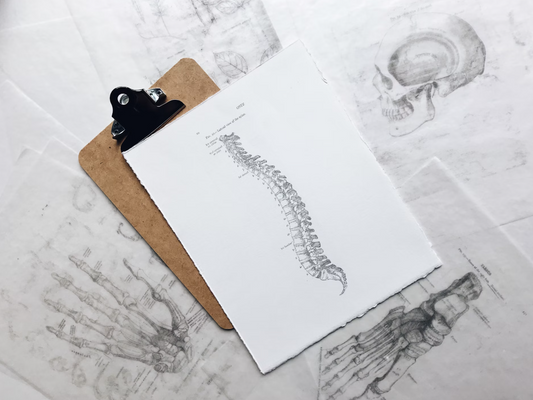When we think about respiratory health, oral hygiene may not be the first thing that comes to mind. However, emerging research highlights a significant link between the health of your mouth and the condition of your respiratory system. The relationship is more interconnected than you might expect, with poor oral health potentially contributing to respiratory issues like infections, chronic diseases, and reduced lung function.
In this article, we’ll explore the connection between oral health and respiratory wellness, why it matters, and how maintaining good oral hygiene can support better breathing and overall health.
How Oral Health Affects the Respiratory System
Your mouth serves as a gateway to your body, and its condition can influence various systems, including your respiratory health. Here’s how:
1. Bacteria in the Mouth Can Travel to the Lungs
The mouth harbors millions of bacteria—both beneficial and harmful. Poor oral hygiene can lead to an overgrowth of harmful bacteria, which may travel down the airway into the lungs. This can trigger respiratory infections or exacerbate existing conditions.
-
Common conditions linked to oral bacteria:
- Pneumonia
- Chronic obstructive pulmonary disease (COPD)
- Bronchitis
2. Gum Disease and Inflammation
Periodontal (gum) disease is an infection of the tissues that surround and support your teeth. It’s caused by bacteria-laden plaque that builds up on the teeth and gums. Inflammation associated with gum disease doesn’t just stay in the mouth—it can spread through the bloodstream, causing systemic inflammation that may impair lung function.
3. Dry Mouth and Respiratory Health
Dry mouth, often caused by medications or certain medical conditions, reduces saliva production. Saliva plays a crucial role in washing away bacteria and neutralizing acids in the mouth. Without it, bacteria can flourish, increasing the risk of oral and respiratory infections.
4. Oral Appliances and Airway Health
Dental appliances like poorly fitted dentures or devices used for sleep apnea may harbor bacteria if not cleaned properly, increasing the risk of respiratory infections.
The Impact of Poor Oral Health on Respiratory Conditions
Certain respiratory illnesses are more closely linked to oral health:
- Pneumonia: Bacteria from the mouth can be aspirated into the lungs, especially in older adults, leading to bacterial pneumonia.
- Chronic Obstructive Pulmonary Disease (COPD): Studies show a higher prevalence of gum disease in individuals with COPD, suggesting that inflammation from oral infections may worsen respiratory symptoms.
- Asthma: Poor oral health can increase the risk of oral infections, which may act as triggers for asthma attacks.
How to Support Respiratory Wellness Through Oral Health
Maintaining good oral hygiene is a simple yet effective way to promote respiratory wellness. Here are some essential steps:
1. Brush and Floss Daily
- Brush: Use fluoride toothpaste and brush for at least two minutes, twice a day.
- Floss: Clean between your teeth daily to remove plaque and food particles that brushing alone can’t reach.
2. Visit Your Dentist Regularly
- Schedule regular dental check-ups and cleanings to catch and address oral health issues early.
- Let your dentist know if you have any respiratory conditions, as they can offer tailored advice.
3. Stay Hydrated
Drink plenty of water throughout the day to prevent dry mouth and keep saliva production at healthy levels.
4. Clean Oral Appliances
- If you use dentures, retainers, or CPAP devices, clean them daily to prevent bacterial buildup.
- Replace toothbrushes or appliance components regularly to ensure proper hygiene.
5. Address Gum Disease Promptly
If you notice signs of gum disease—such as bleeding gums, swelling, or persistent bad breath—seek treatment promptly to prevent further complications.
6. Avoid Tobacco Products
Smoking or chewing tobacco increases the risk of both oral and respiratory diseases. Quitting these habits can significantly improve your overall health.
Who Is at Higher Risk?
Certain individuals may be more susceptible to the oral-respiratory connection:
- Older Adults: Age-related changes in immunity and oral health make older adults more vulnerable to respiratory infections linked to oral bacteria.
- People with Chronic Illnesses: Conditions like diabetes, heart disease, or COPD can compound the risks of poor oral health.
- Caregivers and Healthcare Workers: Proper oral hygiene for individuals unable to care for their own teeth, such as the elderly or hospitalized patients, is crucial to preventing respiratory complications.
The Benefits of a Healthy Mouth for Your Lungs
Prioritizing oral health doesn’t just protect your teeth—it offers broader health benefits, including:
- Reduced Risk of Infections: Keeping oral bacteria in check lowers the likelihood of respiratory infections.
- Better Breathing: Clear airways and reduced inflammation support easier, more effective breathing.
- Improved Overall Health: A healthy mouth contributes to systemic health, reducing the burden on your immune system.
Conclusion
The connection between oral health and respiratory wellness underscores the importance of maintaining a clean and healthy mouth. By adopting consistent oral hygiene practices, staying hydrated, and seeking regular dental care, you can reduce the risk of respiratory issues and breathe easier.
Remember, small daily habits can have a profound impact on both your oral and respiratory health. Protecting your smile might just be the key to safeguarding your lungs, too.




